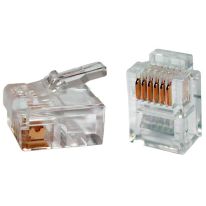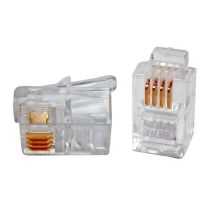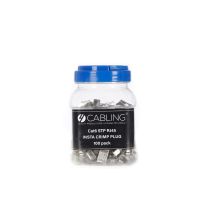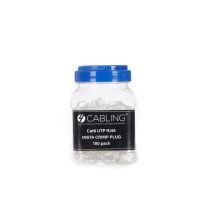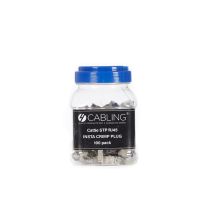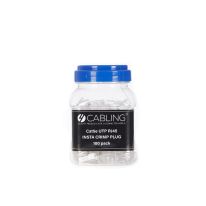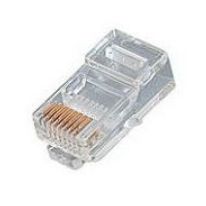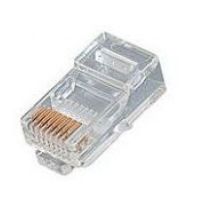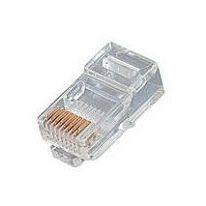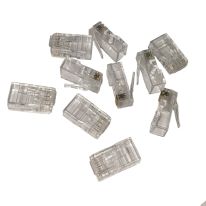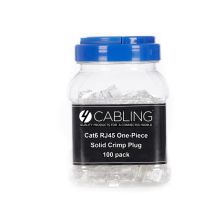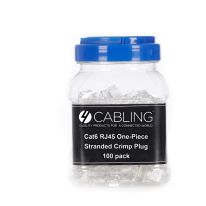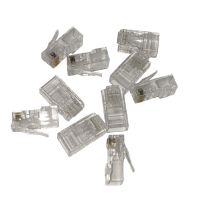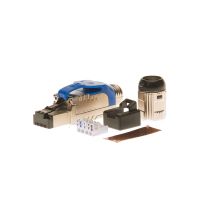Crimp Plugs
14 Results
-
-
-
SKU: 005.002.0047 4Cabling CAT6 STP RJ45 Insta Crimp Plug 100 pack
Pack of 100
$120.12 $109.20In stock
-
SKU: 005.002.0046 4Cabling CAT6 UTP RJ45 Insta Crimp Plug 100 pack
Pack of 100
$108.11 $98.28In stock
-
SaleSKU: 005.002.0041 4Cabling CAT5E STP RJ45 Insta Crimp Plug | 100 Pack
Pack of 100
Special Price $75.68 $68.80 Regular Price $108.11 $98.28In stock
-
SKU: 005.002.0040 4Cabling CAT5e UTP RJ45 Insta Crimp Plug 100 pack
Pack of 100
$96.10 $87.36In stock
-
SKU: 005.002.0113 CAT5E 8 Position RJ45 Modular Crimp Plugs | 100 Pack
Pack of 100
$51.52 $46.84In stock
-
SKU: 005.002.0112 8 Position Stranded RJ45 Cat 5E Crimp Plug 100 Pack
Pack of 100
$42.05 $38.23In stock
-
-
SKU: 005.002.0035 Cat 6 8 Position RJ45 One-Piece Modular Crimp Plug | Solid | 10 Pack
Pack of 10
$8.13 $7.39In stock
-
SKU: 005.002.0135 Cat 6 8 Position RJ45 One-Piece Modular Crimp Plug | Solid | 100 Pack
Pack of 100
$77.00 $70.00In stock
-
SKU: 005.002.0134 Cat 6 8 Position RJ45 One-Piece Modular Crimp Plug | Stranded | 100 Pack
Pack of 100
$78.49 $71.35In stock
-
SKU: 005.002.0034 Cat 6 8 Position RJ45 One-Piece Modular Crimp Plug | Stranded | 10 Pack
Pack of 10
$8.26 $7.51In stock
-
SKU: 010.005.1020 4Cabling CAT6A Shielded Field Termination Toolless Plug
Single Pack
$21.63 $19.66In stock



